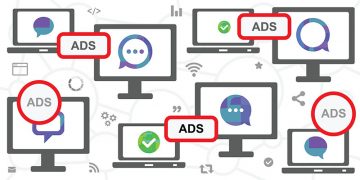Applabzzeydoo.com Attempts to Slip You Ads

While examining unreliable websites, our researchers came across the fraudulent webpage applabzzeydoo.com. This site is crafted to endorse deceptive content and send out spam browser notifications. Moreover, it has the capability to redirect users to other websites, often ones that are deemed unreliable or hazardous.
Users typically land on pages like applabzzeydoo.com through redirects facilitated by sites utilizing deceptive advertising networks. The activities of these rogue webpages, including the content they load or promote, may vary based on the IP addresses or geolocations of the visitors.
During our investigation, applabzzeydoo.com was found to be running a scam related to VPN services. Similar scams are widespread on the internet, featuring messages that threaten the user with fake warning messages.
Additionally, applabzzeydoo.com sought permission to display browser notifications. Once granted by selecting the "Allow" option, it led to a redirection to a webpage promoting the Sebux adware.
These rogue websites often exploit notifications to conduct intrusive ad campaigns. The ads displayed typically promote online scams, untrustworthy or harmful software, and sometimes even malware.
What Social Engineering Tricks Are Used by Misleading Sites to Push Ads?
Misleading sites often employ various social engineering tricks to push ads and manipulate users into taking certain actions. Here are some common social engineering techniques used by such sites:
- Fake Alerts and Warnings: Misleading sites may display fake alerts or warnings to create a sense of urgency. These can include messages claiming that the user's device is infected with viruses, their software is outdated, or their personal information is at risk. The goal is to prompt users to click on ads or take actions to address the supposed issue.
- Imitation of Trusted Brands: Some misleading sites mimic the design and branding of well-known and trusted companies or services. This technique, known as phishing, aims to deceive users into thinking they are interacting with a legitimate site. Users may be more likely to click on ads or provide sensitive information if they believe they are on a trustworthy platform.
- Clickbait and Sensationalism: Misleading sites often use clickbait headlines or sensational content to grab users' attention. They may promise exclusive offers, shocking news, or incredible deals to lure users into clicking on ads. Once users are on the site, they may be bombarded with advertisements.
- Fake Content and Imaginary Prizes: Some sites create fictitious content, such as fake news stories, quizzes, or contests, to engage users. The promise of winning prizes or accessing exclusive content can be used to manipulate users into interacting with ads or providing personal information.








